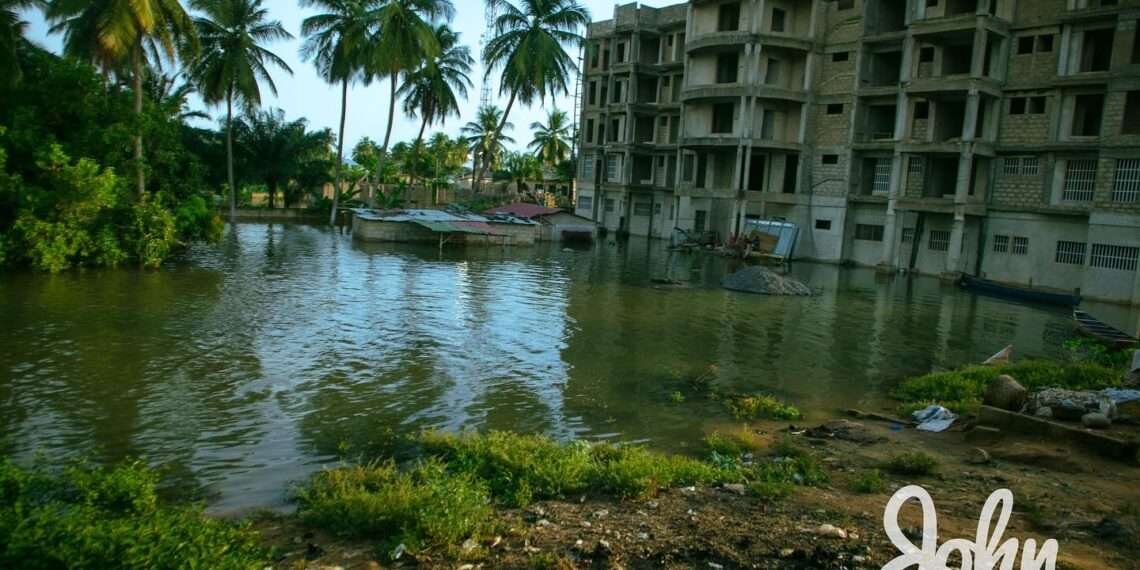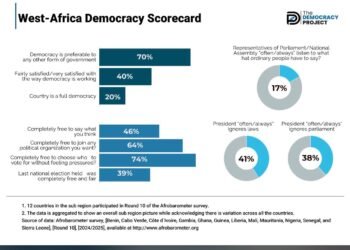In an era of fast-paced activities and real-time innovations, it beats one’s imagination the laxity of an elected government, submerged in seemingly unresponsive behavior to citizens’ needs.
When nonchalance creeps into the operation of a government elected to turn the fortunes of a country around, the most pathetic situations, dehumanizing and abject poverty encountered by individuals become a normal phenomenon.
Dealing with the trend of a government whose objectives have been clogged with gratifications beyond the interest of people, signals the ‘death’ of the country.
Interestingly, the irony of a substance which is perceived to foster life and wellbeing has brought havoc to some communities in the Volta region, with some key districts such as Central, North and South Tongu on the verge of being sunk under a human engineered flooding.
The recent man-made disruptive occurrence by the Volta River Authority (VRA) on September 15, 2023, began with controlled spilling at the Akosombo and Kpong Dams.
As VRA continues to consistently monitor the water levels at both the upstream and downstream of the Akosombo and Kpong dams, receding water level is not in clear sight.
With many still counting their losses as the spillage from the Akosombo dam, residents wait with bated breath and near-dashed hopes, waiting on government to intervene and redeem them from the assault of flooding which has made airwaves in recent times.
The damning reality has been for the communities to save themselves, with little or no help from the state because there’s no real help coming.
A redemptive effort usually put in by the opposition, and all political parties who go into opposition remains commendable, albeit such enthusiasm fizzles out when they gain power and drink it to stupor.
Member of parliament for North Tongu, Samuel Okudzeto Ablakwa, whose constituency has been adversely affected by the flood has keyed in his concerns, sending relief items of his own to affected areas.
Following suit is the legislator for Builsa South, Dr Clement Apaak, who carries the sentiments of many by asking whether “NADAA or his sidekick, DMB, visited to commiserate with innocent victims of the floods, further questioning whether he had missed the news item”.
He lamented that communities are under water, thousands displaced, millions worth of property destroyed, and government’s prominent comeback was by of announcing a committee.
“Is it not shocking that neither the President nor his vice have paid a visit to an affected community to sympathize with these citizens who have lost everything? If NADAA had a sense of empathy, he should have cancelled his trip abroad and returned to Ghana immediately.
“Is DMB telling the victims of the floods that his campaign to lead the NPP is more important? As the acting President, shouldn’t his duty in that capacity take priority over his campaign to lead the NPP?”
Dr Clement Apaak
Plugging the leaking holes within policies
Aside the perennial flooding the country is saddled with, this man-inspired flood which has had its course within peaceful and thriving communities must be holistically addressed. Fish farmers have had their fingerlings washed away by the high tides, and as they count their losses, the question also remains whether this would have to be the case with every other spillage not just with the Akosombo dam in the country.
Essentially, authorities have been blamed for not doing enough to mitigate recurrent flooding. The country’s laws and policies concerned with flooding, like the Blue Agenda and the National Water Policy, have been criticised as inadequate and poorly implemented.
The National Water Policy which is the primary programme aimed at integrating water-resources management, as it encompasses measures directed at mitigating floods via early warning and establishing buffer zones has been criticized.
Additionally, the Blue Agenda which focuses on development control, public education, provision of drainage, and flood-control initiatives in urban communities has failed to achieve the desired results of adequately managing flood risk.
Nonetheless, the underlying drivers of flooding in Ghana presents an opportunity for collaboration in research and data sharing. This must include improving flood risk and hazard information dissemination and building capabilities for mitigation and sustainable response strategies.
Moreover, government, understanding the regular need to spill the excess water must be able to collect better flood data, and research is key to providing hydrological data, modelling information, flood warning, risk analysis, simulation, forecasting and adaptation.
Meanwhile, institutional tools in the form of policies and legislation for managing such man-made flooding are poorly defined and deficient. As such, it is important to share data with relevant institutions such as VRA, NADMO and others on exposures, vulnerabilities, and hazards.
Invariably, such data can inform flood-risk assessment and response and enable the country learn from previous mistakes.
Yes, VRA and NADMO have donated thousands of relief items to affected communities, but it must not end there.
To borrow the words of North Tongu legislator, the Volta River Authority must announce “their non-negotiable plans for full compensation” of all victims of their unprecedented spillage from the Akosombo and Kpong dams.
This “large-scale devastation of biblical proportion was totally avoidable if the VRA management had put in place the right safety precautions and adequate community engagement, particularly, as they were the only ones who knew the quantum of water to be discharged and the dire implications for life and property”.
The “unfolding catastrophe” of such nature would have been “averted” if only institutions tasked to do their work cooperated as such. Ghana can do better.
READ ALSO: Former NPP Presidential Aspirant Laments ‘Broken’ State Of Ghana























